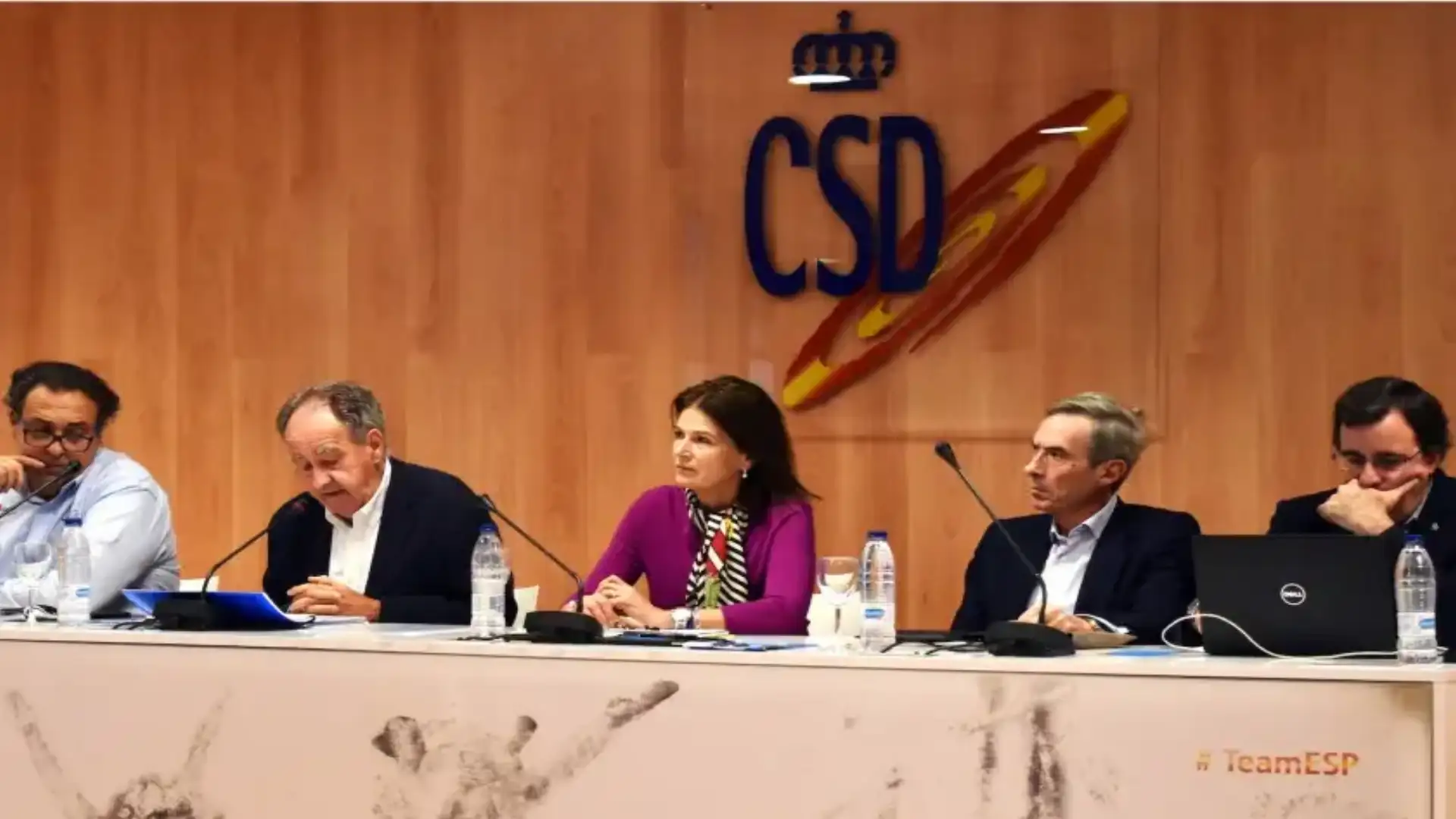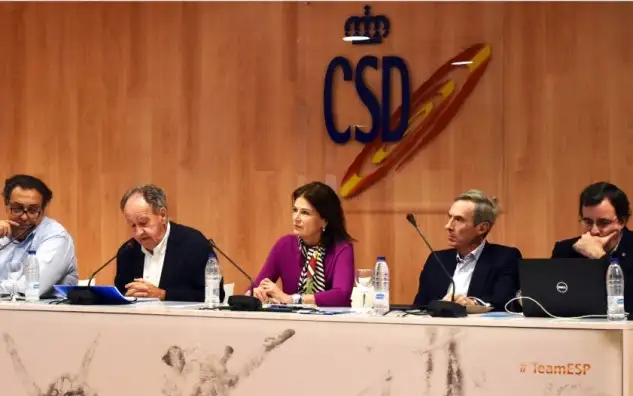
The Spanish de Vela approves a budget close to the 5M of euros
The Spanish de Vela approves a budget close to the 5M of euros

Javier Sanz was starting the management report by highlighting "a significant growth over the last two years, with more income and, of course, with more means, something that athletes are grateful for being very necessary."
On Saturday, the Special General Assembly of the Royal Spanish Vela Federation was held on the premises of the Higher Council of Sports. Among other points to be addressed in this Assembly, convened by Spanish President Julia Casanueva and her management team, a global budget of 4,700,000 euros has been approved by 2020.
Among the items of the day was the approval of the 2020 economic budget and the progress of 2019 results, following an audit report and by the Commission and annual accounts 2018. In addition to others such as the amendment of the Statutes, the 2019 sports report and the 2020 testing schedule, and the communication plan for next year.
It was the economic vice president, Javier Sanz, who took the floor after Casanueva's presentation. To begin with, the Vice-President presented to the General Assembly the audit report and the Commission Delegate of Balance and Annual Accounts 2018 with a profit of 104,936.06 euros, compared with 53,379.81 of 2017 and a positive manoeuvre fund ratio of 95,668.60 euros.
With regard to economic aid, Sanz highlighted the high subsidies received by the CSD, which amount to 66% of the income, followed by the own resources that cover 30%.
Then it was the turn of a very well received economic report 2019 that has presented a projection of the result (at 31 December 2019) with a profit of approximately 275,000 euros, and that shows the healthy health of the Royal Spanish Federation of Vela following a deep plan of economic viability established in recent years.
Pablo Barrio, Director General, closed the economic assessment and analysis with the financial year 2020, presenting the budget as a global project covering the regular and extraordinary subsidies from the audiovisual rights of football, with a final result of 41,000 euros, a result in accordance with the Feasibility Plan of the Higher Council of Sports.
The amendment of the Statute of the RFEV provided for the revision of the following points, which were adopted by forty-eight votes to six:
Article 4.1: The Royal Spanish Vela Federation shall have its registered office in Santander, CEAR Príncipe Felipe, c / Gamazo s / n.
Article 15a: All the collegiate bodies of the RFEV may take their agreements anywhere, either as a universal meeting, or in face-to-face or telematics meetings, although for all legal purposes they shall be understood to be adopted at the seat of the RFEV itself in Santander. They shall take their agreements by a majority of voting assistants and their respective Presidents shall have a direct vote in the event of a tie.
Article 14 (c), the following committees are added:
(9) Committee on Competitions.
10) Adapted Sailing Committee.
11) Olympic Preparation Committee.
(12) Committee on Women and Sport.
Base candle and Olympic equipmentIn the introduction to the sports exhibition block, Joaquín González Devesa, RFEV's sports vice president, publicly thanked Carlos Paz for the technical plan implemented and for the trust of the clubs in their federations, applauding the great teamwork done.
Rafael Serrano, a competition technician and the Judges Committee, presented the race schedule and the amendments to the competition and cruise regulations that were approved by the assembly.
In the purely sporting aspect, the director of Olympic Preparation, Santiago Ópez-Vázquez, emphasized the importance and illusion with which the Olympic year is faced, analyzing the sports results and the confirmation of four Olympic sails (470 male and female and RS: X male and female) in addition to those that are put into place in just a few days for the Nacra17, 49er and 49er FX classes in New Zealand.
Ópez-Vázquez emphasized the importance of "working together, paving in the same direction and respecting individual interests, because sailing is a country sport, not individual athletes."
On Vela Juvenil, a category that is now very much enhanced by the federation, it was Carlos Paz who was responsible for analysing the state of the program, from which he highlighted the different and complete phases of technification and multiple concentrations, which are already bearing fruit and which have developed throughout the year.
From the candle for the young, the cruise sail was given way by the hand of José Martínez, who highlighted the fact that this year was 72 new ships with a certificate of competition, placing the total of certificates issued in 1,523, which places Spain as the second European country in the number of rating certificates issued.
The event was closed by Helena de la Gandara presenting the communication plan that the RFEV team has set in motion for the JJ.OO. of Tokyo 2020
© 2024 Nautica Digital Europe - www.nauticadigital.eu











